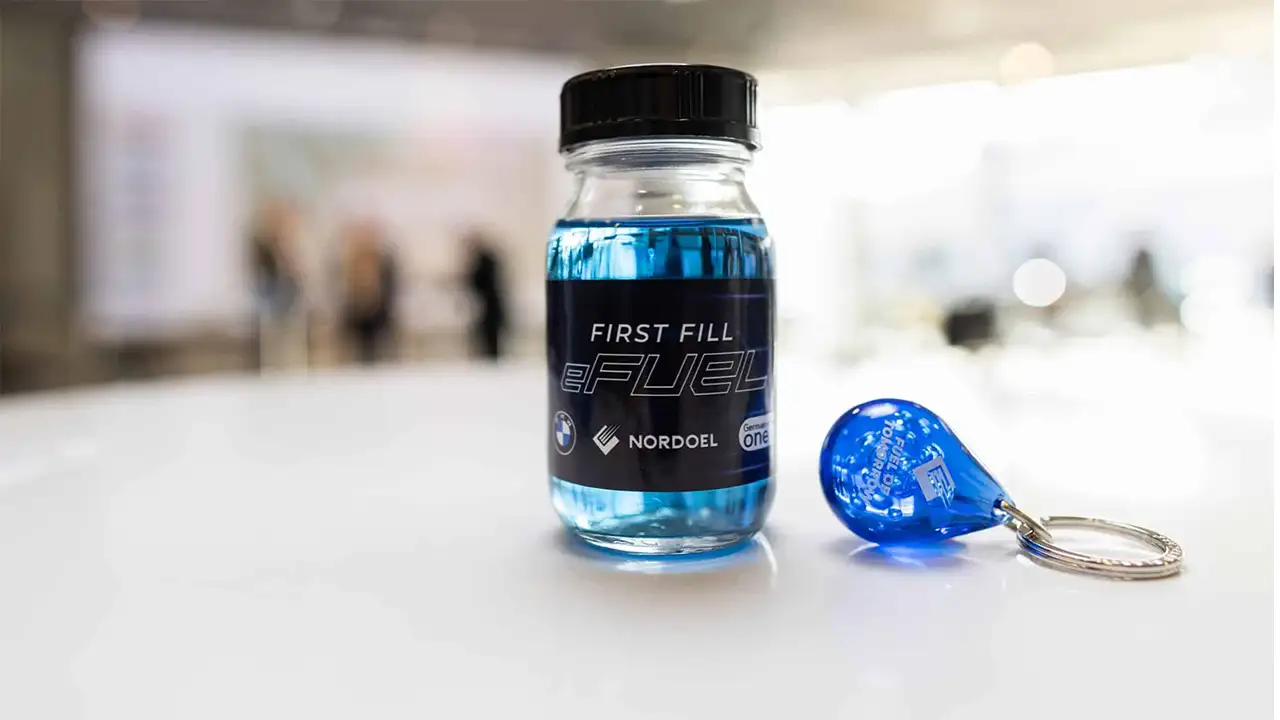Overall, the net sum of eFuel production and consumption is significantly less polluting in terms of greenhouse gas (GHG) emissions compared to the extraction and consumption of regular diesel. However, the picture is more complex when considering other forms of pollution, particularly local air quality.
Greenhouse gas emissions (GHG)
- eFuels are nearly carbon-neutral: eFuels are manufactured by synthesizing hydrogen (from water electrolysis) and captured carbon dioxide
- Diesel extraction is carbon-intensive: The production and use of regular diesel release a large volume of fossil carbon that was previously stored underground. Over 90% of a fossil fuel vehicle's lifetime GHG emissions come from the consumption of fuel, which includes the entire extraction-to-use cycle.
Local air pollution
- eFuels still release pollutants: While they are effectively carbon-neutral for climate purposes, eFuels are burned in internal combustion engines just like fossil fuels. This combustion process still releases toxic tailpipe pollutants such as nitrogen oxides (
NOxcap N cap O sub x
) and carcinogenic particulates, which harm air quality and human health in urban areas. Studies have shown that e-petrol and e-diesel emit comparable amounts of harmful pollutants as their fossil fuel counterparts.
- Diesel engines are major polluters: Diesel is a significant source of local air pollution, particularly particulate matter and
NOxcap N cap O sub x
, which have been linked to respiratory illnesses and other health problems.
Other environmental factors
- The origin of electricity matters: The near-zero climate impact of eFuels depends entirely on the use of 100% renewable electricity for their production. If the power is sourced from fossil fuels, the overall lifecycle emissions can be comparable to, or in some cases even higher than, conventional fuels.
- Production efficiency and energy usage: The process of creating eFuels is highly energy-intensive and currently much less efficient than direct electrification, where electricity is used to directly power a vehicle. This means more renewable energy is required to power an eFuel vehicle than an electric vehicle (EV) over the same distance.
- Indirect impacts: Life Cycle Assessments (LCAs) for both fuels also consider other factors, such as the environmental costs of building renewable energy infrastructure for eFuels, or potential oil spills and land use changes associated with fossil fuel extraction.
Conclusion
From a climate change perspective, the net sum of eFuel production and use is far less polluting than conventional diesel, provided the electricity used for production is 100% renewable. However, when it comes to local air quality,
eFuel combustion is no cleaner than fossil fuel combustion. Therefore, eFuels are a powerful tool for decarbonizing hard-to-electrify sectors like aviation and shipping, but
they do not solve the problem of local air pollution from tailpipe emissions.


